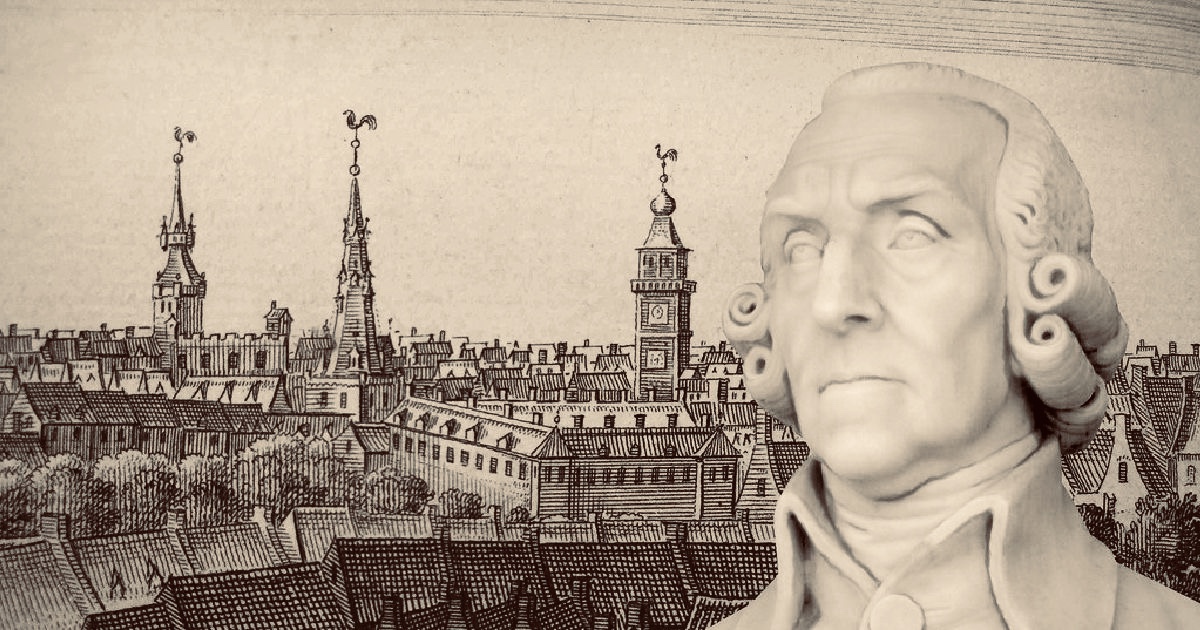I have lived in states where I could step into a pedestrian crosswalk and be nearly certain that drivers would stop for me. In other states, drivers would not stop; or having stopped, they’d grow impatient and creep up within inches of my body as I crossed. Laws protecting pedestrians are much the same everywhere, but cultural norms concerning pedestrians vary greatly from state to state. I love to walk; my quality of life is higher in states where courtesy towards pedestrians is the social norm.
From the viewpoint of pedestrians, motorists in some states are lovelier than in other states. Lovely is the term Adam Smith uses in his book The Theory of Moral Sentiments to describe individuals who are “worthy of being loved” because of their character.
In How Adam Smith Can Change Your Life, economist Russell Roberts builds on Smith’s The Theory of Moral Sentiment. Roberts describes the role “each of us plays in creating a moral society.” As we live our lives, we are “creating our civilization.”
How to treat pedestrians is just one of the many decisions we make every day. How loving are we to our families? How about to strangers that we encounter briefly, for example, the supermarket checkout clerk or a customer service representative on the telephone? How much discretionary effort do we employ at our workplace to help create value for others?
Individually, we decide what is virtuous. Collectively, as we act on our decisions, we determine the societal culture in which we live. Roberts writes, “All the norms that overlay our daily interactions — the trust, the empathy, the respect, the disdain, the rejection, the kindness, the cruelty — all these patterns of behavior around us come from all our actions together in a similar way that language use is ‘decided’ by all our individual actions together.”
This “cultural landscape,” as Roberts calls it, is not “controlled, determined, or manipulated by any one person.” Importantly, Roberts points out that “few of us realize that we play a role in creating these norms and values.”
Fellowship and Freedom
As libertarians, it is easy to be aware of the importance of freedom. Is it just as easy to forget the responsibilities that go with those freedoms?
In his important essay “Against Libertarian Brutalism” Jeffrey Tucker points out that while in a “libertarian world” the right “of individuals to live their values whatever they may be” is a given, at the same time, a humane world requires that we rise above our baser values. Tucker writes:
The story of liberty and its future is not only about the raw assertion of rights but also about grace, aesthetics, beauty, complexity, service to others, community, the gradual emergence of cultural norms, and the spontaneous development of extended orders of commercial and private relationships. Freedom is what gives life to the human imagination and enables the working out of love as it extends from our most benevolent and highest longings.
In other words, in a libertarian world, we have the right to disdain those different than us. We have the right to ignore our children while watching back-to-back football games on Sunday. We have the right, as long as we don’t hit them, to menace pedestrians with our automobiles. We have the right to not take steps to preserve our health. We have the right to endanger ourselves and cause despair for those who love us by overly indulging in the many hedonistic behaviors available to us.
Tucker asks whether we want libertarianism to be “brutalist or humanitarian.” Do we, as individuals, want to be brutal or humanitarian? Adam Smith wrote, “Man actually desires, not only to be loved, but to be lovely…He naturally dreads, not only to be hated, but to be hateful.” The cultural landscape in which we all live is determined by our choices to be “lovely” (or not).
The Last of Human Freedoms
Our innate compass points us in the direction of loveliness and away from being hateful or irresponsible. When we are out of touch with that guidance, we can choose once again. In his seminal book, Man’s Search for Meaning, Viktor Frankl wrote:
We who lived in concentration camps can remember the men who walked through the huts comforting others, giving away their last piece of bread. They may have been few in number, but they offer sufficient proof that everything can be taken from a man but one thing: the last of the human freedoms—to choose one’s attitude in any given set of circumstances, to choose one’s own way.
Frankl was not an armchair psychiatrist. During World War II, for five years, he was imprisoned in Auschwitz and other concentration camps. His right of self-ownership was gone, but he never lost self-responsibility. “Man is ultimately self-determining,” Frank wrote. Frankl continued:
What [man] becomes— within the limits of endowment and environment— he has made out of himself. In the concentration camps, for example, in this living laboratory and on this testing ground, we watched and witnessed some of our comrades behave like swine while others behaved like saints. Man has both potentialities within himself; which one is actualized depends on decisions but not on conditions.
Few of us have lived in conditions anything like a concentration camp. By large orders of magnitude, our human job to be lovely is easier than was Frankl’s. If we expect libertarianism to inspire others, we must take responsibility to live by our highest values. Abolitionist and clergyman Henry Ward Beecher’s classic words, from his book Life Thoughts, still ring true today: “He is the greatest whose strength carries up the most hearts by the attraction of his own.”
My effectiveness at my work plummets and my human relations suffer when my loveliness quotient tumbles. During parts of every day, I may not be living by my highest values. Instead, I may be listening to the egoic noise in my head, what Buddhists call the “monkey mind” that chatters away with its narrative of my victimhood and what I expect from life. When I indulge the noise, I become lost in my thoughts and less available to what life is asking of me. Why should others care about what I say, if I am not fully present to listen to them?
“Your actions speak so loudly, I cannot hear what you are saying,” wrote Ralph Waldo Emerson in his essay “Social Aims.” What do our actions say? If we expect others to value our message of liberty, we can all work at being lovelier individuals.
We must each determine our own highest values. To exercise responsibility in living those values rarely requires heroic measures. Throughout the day we can choose to put our heart into our work and fully engage the humanness of everyone we encounter. By our choices we can help to create a lovelier world where freedom can flourish. In such a cultural landscape, perhaps the demand for government to solve problems will shrink.

Barry Brownstein
Barry Brownstein is professor emeritus of economics and leadership at the University of Baltimore. He is the author of The Inner-Work of Leadership. To receive Barry’s essays subscribe at Mindset Shifts.
This article was originally published on FEE.org. Read the original article.





3 comments
… [Trackback]
[…] Read More to that Topic: thelibertarianrepublic.com/what-adam-smith-can-teach-us-about-being-lovely/ […]
… [Trackback]
[…] Read More here on that Topic: thelibertarianrepublic.com/what-adam-smith-can-teach-us-about-being-lovely/ […]
… [Trackback]
[…] Read More Info here to that Topic: thelibertarianrepublic.com/what-adam-smith-can-teach-us-about-being-lovely/ […]